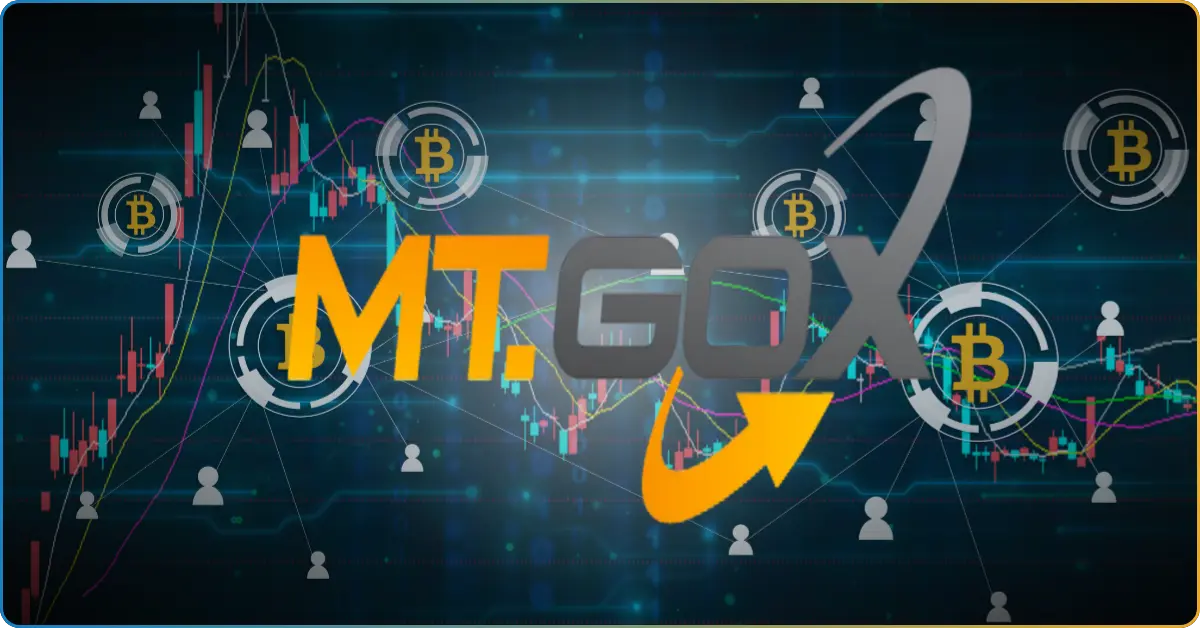The Bitcoin market (or the whole crypto market) had a very humble beginning. It used to be filled with uncertainty, ridicules, and skepticism that its first few years were in extreme slump.
A big character in the rough history of the Bitcoin market was Mt. Gox—the first-ever and debatably the largest Bitcoin trading platform back in its peak. However, Mt. Gox’s role in the now thriving financial market didn’t see the light of day. It ultimately filed for bankruptcy in 2014 after dealing with several hacks and lost BTC units due to non-compliance with the money transfer regulations.
In this TRU Insight, we’ll explore everything you need to know about Mt. Gox. Read on to learn how its collapse developed and how it was a stark reminder of the need for a secure and future-proof exchange system.
What Was Mt. Gox?
Mt. Gox (MTGox or Mt Gox) was a Tokyo-based Bitcoin exchange—among the first-ever exchange platform that facilitated BTC trading.
Aside from being the pioneer, this was also considered as the largest BTC trading platform during its peak as several studies unfold how it’s responsible for more than 70% of BTC transactions in 2012 to 2013.
However, the emergence of new technologies like Bitcoin was viewed as a hotspot for hackers. This served as the primary hurdle for the exchange platform.
In the first year of its operation (2011), the platform was hacked using a stolen credential, ultimately losing 2,609 Bitcoin units. Three years after that, the platform was once again hacked, and the stolen units of Bitcoin were said to be 850,000.
As the company experienced severe theft, Mt. Gox filed for bankruptcy in 2014. In late 2021, the creditors and the Tokyo District Court reached an agreement on the rehabilitation plan for Mt. Gox. This ultimately ended the seven-and-a-half-year legal battle.
The Early History of Mt. Gox
Interestingly, Mt. Gox was not originally intended to be a Bitcoin exchange platform. In fact, a web programmer named Jed McCaleb purchased the Mt. Gox website (http://mtgox.com/) to host the exchange (buying, selling, or trading) of the Magic: The Gathering game cards.
This platform was ultimately named after the game- Magic: The Gathering Online eXchange.
However, the gaming card exchange didn’t perform as well as McCaleb anticipated. Thus, he changed the website’s system to facilitate Bitcoin trading at that time. He sold 88% of the company to the Japan-based French businessman named Mark Karpeles.
Despite several security hurdles, Mt. Gox performed exceptionally well as a Bitcoin exchange platform. In fact, it became so big that it was responsible for almost all BTC transactions in 2012 to 2013.
However, its glory was cut short in 2014. After dealing with another hacking attack, the company filed bankruptcy as Karpeles acknowledged that the lost 850,000 Bitcoin units won’t be able to recover.
In late 2021, Mt. Gox’s creditor and the Tokyo District Court reached an agreement for the Mt. Gox rehabilitation plan.
The Lost 850,000 Bitcoin Units
The collapse of Mt. Gox, once the world’s largest Bitcoin exchange, resulted in the loss of approximately 850,000 Bitcoin units, worth hundreds of millions of dollars at the time.
Today? It would be around a hundred billion USD.
This catastrophic event highlighted significant vulnerabilities in the cryptocurrency market, emphasizing the need for robust security measures and regulatory oversight.
The lost Bitcoin units remain a poignant reminder of the risks associated with digital currencies and the importance of safeguarding digital assets.
“MTGOX Where Is Out Money” Protest
In the wake of Mt. Gox’s collapse, frustrated investors staged protests outside the company’s Tokyo headquarters, demanding answers and the return of their funds.
The “MTGOX Where Is Our Money” protest became a symbol of the broader discontent within the cryptocurrency community.
Demonstrators, some of whom had lost significant portions of their savings, called for greater transparency and accountability from cryptocurrency exchanges
Mt. Gox Was Not a Scam – But It’s Non-Compliance with Money Transfer Regulations
While Mt. Gox was not inherently a scam, its downfall was largely due to non-compliance with money transfer regulations and inadequate security practices.
The exchange’s failure to adhere to regulatory standards and its vulnerability to hacking attacks led to its eventual bankruptcy.
This case underscores the critical need for cryptocurrency exchanges to comply with financial regulations and implement stringent security protocols to protect investors.
















